News
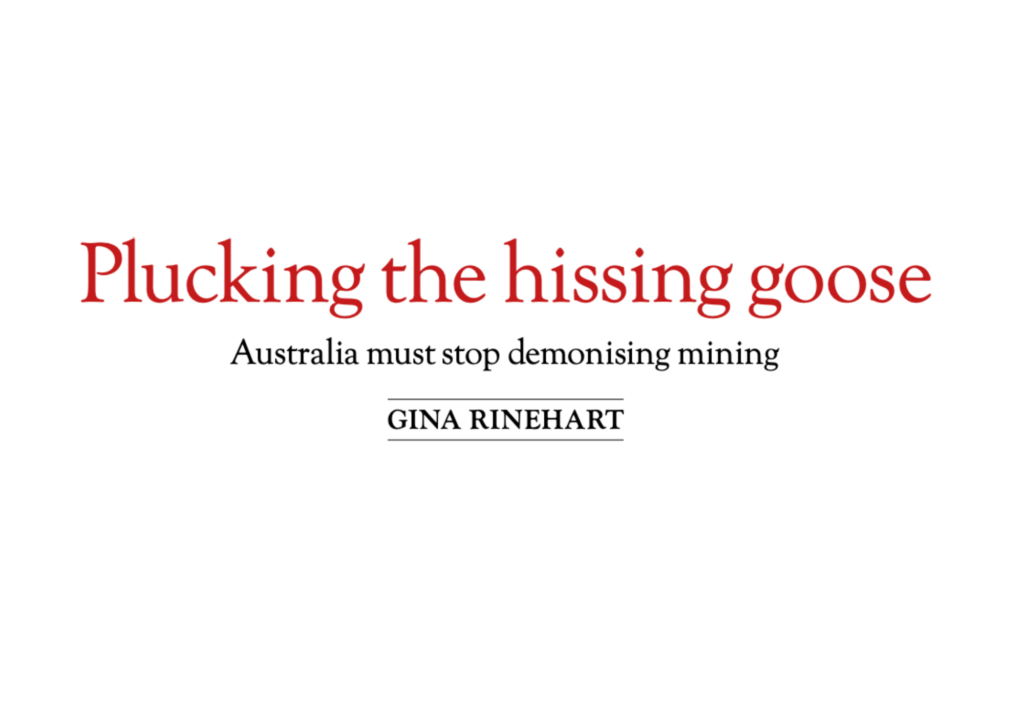
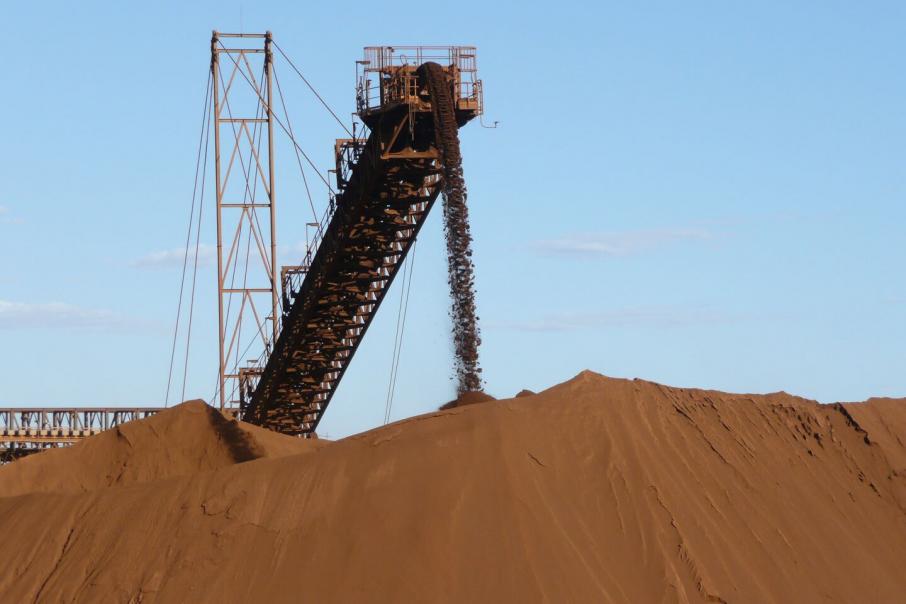
Iron ore drives resources growth
WA produces a diverse array of minerals, yet one commodity dominates the sector. The iron ore expansions that kicked off the mid 2000s were the start of a decade-long boom that is reflected in iron ore’s status as by far the biggest export earner in WA. Roy Hill Holdings – majority owned by Gina Rinehart’s Hancock Prospecting – has added substantially to the industry’s capacity, with annual production of over 60mt.

Miners release ad blitz on tax
Mining companies have launched an advertising blitz that draws a link between Federal Government spending and the industry’s record taxes and royalties.
The first advertisement, “Australia does well when Australian minerals do well”, released on Sunday night, links mining’s $63 billion in taxes and royalties to Government funding for hospitals, public transport, schools, clean energy and infrastructure. The video also shows that mining pays Australia’s highest and largest taxes, which equals one-third of all company taxes.
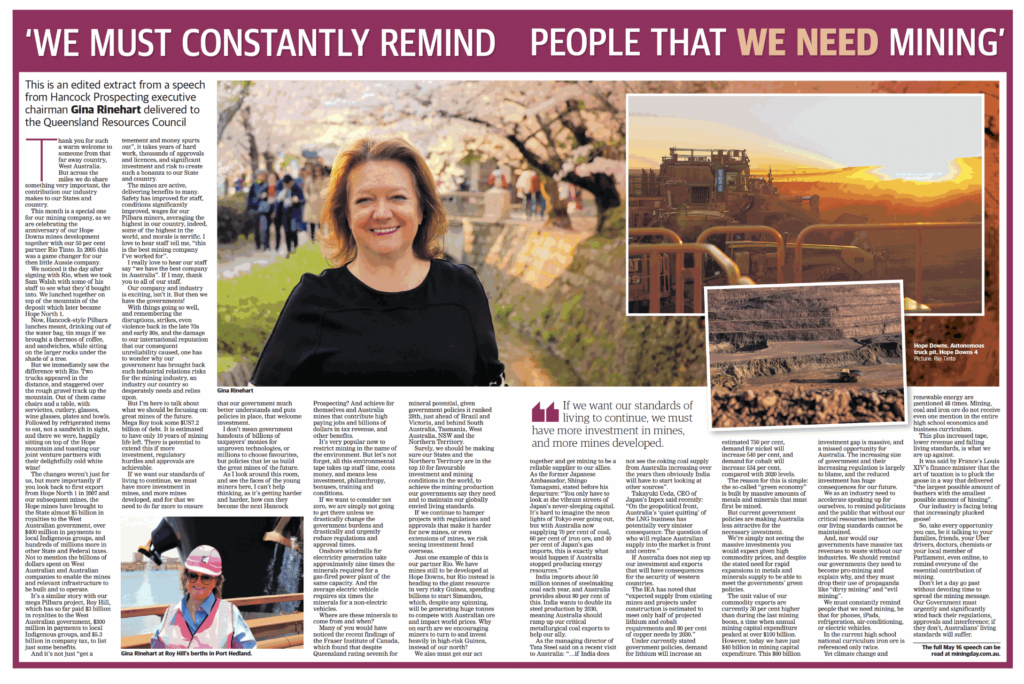
‘WE MUST CONSTANTLY REMIND PEOPLE THAT WE NEED MINING’
This month is a special one for our mining company, as we are celebrating the anniversary of our Hope Downs mines development together with our 50 per cent partner Rio Tinto. In 2005 this was a game changer for our then little Aussie company.

DON’T MESS WITH MY GAS TAX TWEAKS
Treasurer Jim Chalmers warns it will be “diabolical” for industry if the Coalition opposes its gas tax changes, a decision he argues will force Labor to deal with the Greens and crossbench to get the policy through Federal Parliament.
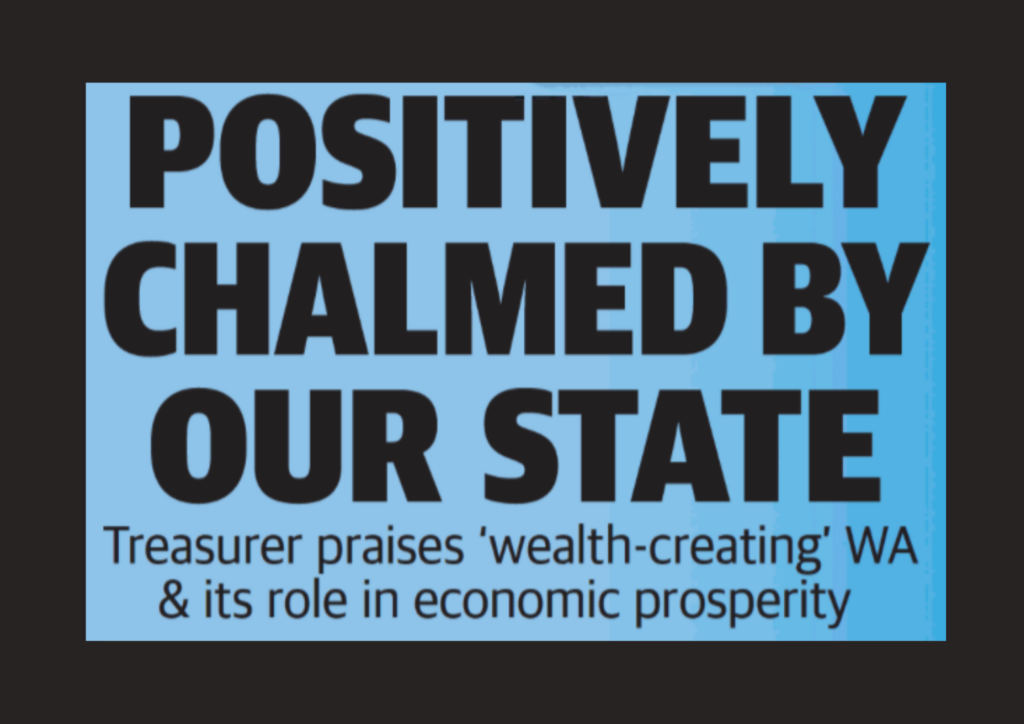
POSITIVELY CHALMED BY OUR STATE
Jim Chalmers has warned of “diabolical” outcomes for the oil and gas industry if the Coalition fails to back proposed changes to the Petroleum Resource Rent Tax during a visit to Perth in which he also positioned WA as critical for the future prosperity of the nation. He said Prime Minister Anthony Albanese’s regular visits to WA — 12 in the past 11 months — were “less about politics and more about your economic significance”. “We simply won’t grab the opportunities and the big chances of the defining decade ahead without WA’s economy firing and contributing,” Dr Chalmers said. “We’ll need you and the wealth-creating, opportunity generating, industries that call this State home.

‘Wind Back Regulation’: Aussie Mining Magnate Urges Federal Government to Consider ‘Regional Security and Stability’
Australian mining magnate Gina Rinehart has urged the federal government to reduce regulations for the mining industry so that the nation’s natural minerals and resources can be better utilised to provide security and stability in the Indo-Pacific. Moreover, Rinehart called for the federal government to consider that for its green policies to be feasible, metals and minerals need to be mined. “You simply can’t build minerals-guzzling EVs without massive mines,” Rinehart explained. “The average EV contains over 206 kilograms of copper, lithium, nickel, manganese, cobalt, graphite, and rare earth elements.”
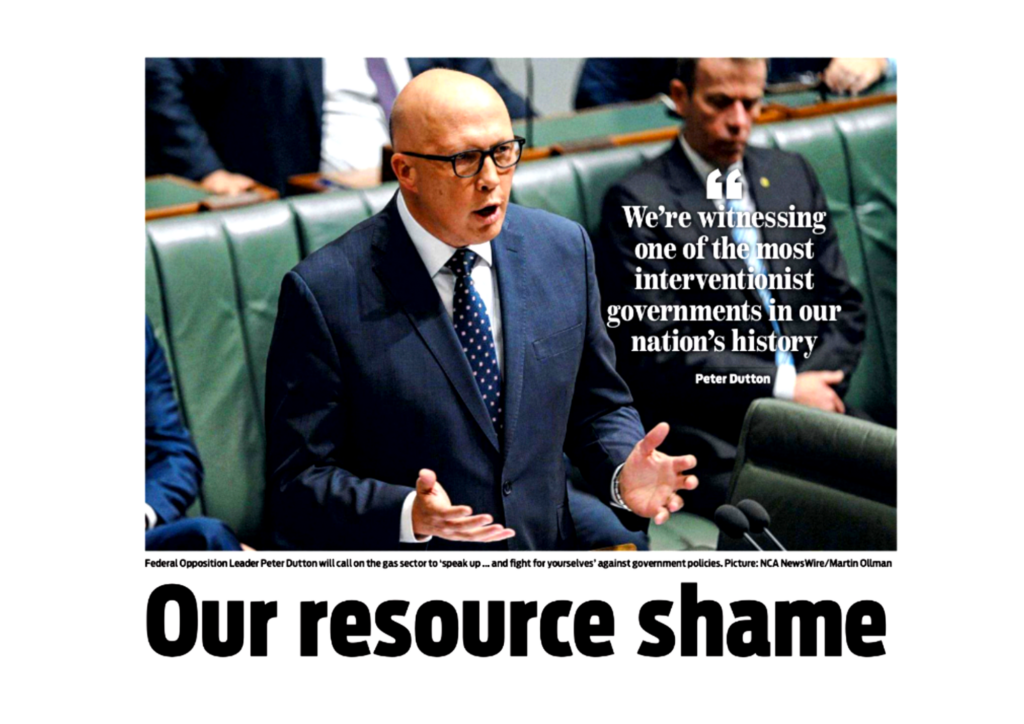
OUR RESOURCE SHAME
In his strongest attack yet, Opposition Leader Peter Dutton is going to war with Prime Minister Anthony Albanese over resources, accusing him of using “whips and chains of tax and regulation” against private enterprise, while one of his top lieutenants declared Australia needs to stop being “ashamed of being a resources nation”. In a call to arms, Mr Dutton will call on the gas sector to “speak up … and push back and fight for yourselves” against government policies, including the coal and gas price caps, as well as changes to taxes, environmental protection and industrial relations. The offensive comes a week after the first federal budget surplus in 15 years, which was achieved in part due to record revenue from the resources sector.
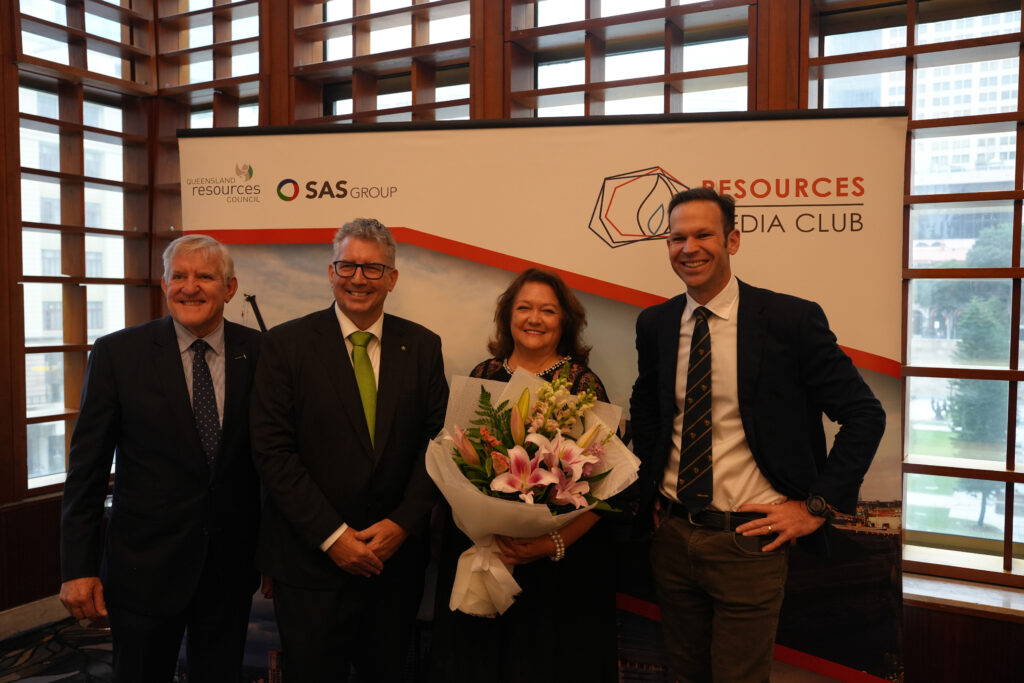
Gina Rinehart unleashed: Australia’s richest woman launches scathing attack on Labor over migrants and Centrelink… and reveals the two words she’s fed up of hearing
Gina Rinehart has launched an extraordinary attack on Labor in a scathing speech – slamming the Federal government’s welfare policies and its forecast that 1.5million migrants will come to Australia in the next five years. The country’s richest woman spoke at an event hosted by the Queensland Resources Council on Tuesday where she claimed Treasurer Jim Chalmers’ Federal budget surplus was built on the back of the mining industry. The resources magnate, who is the executive chairwoman of Hancock Prospecting, said that state and federal governments would not ‘have their massive tax revenues to waste without our industries’, amid booming commodities prices.
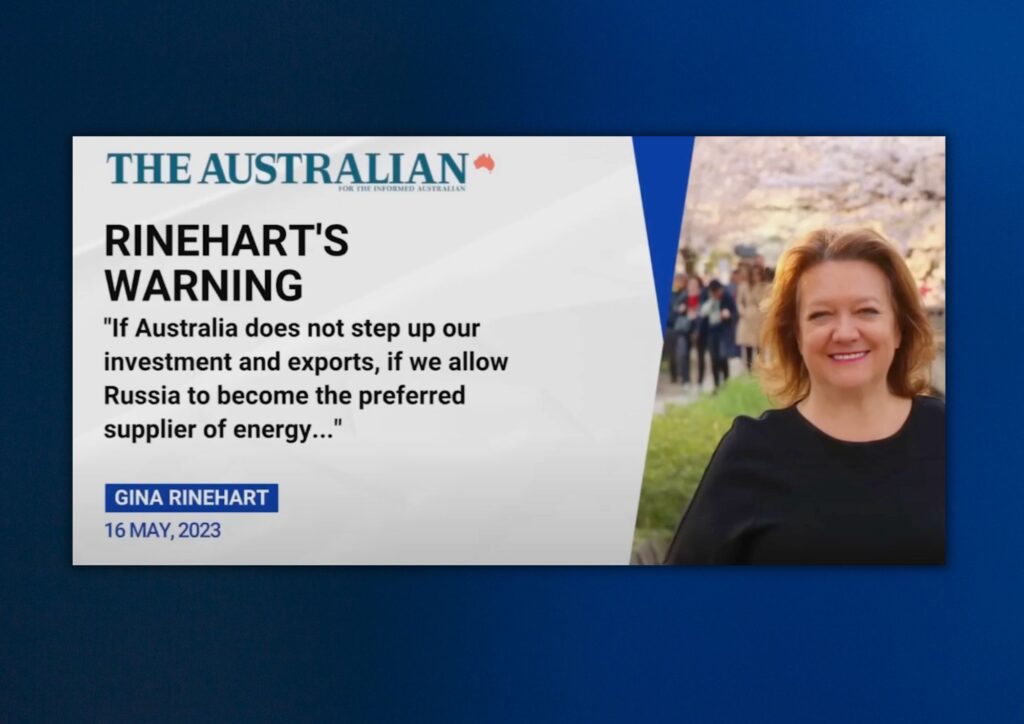
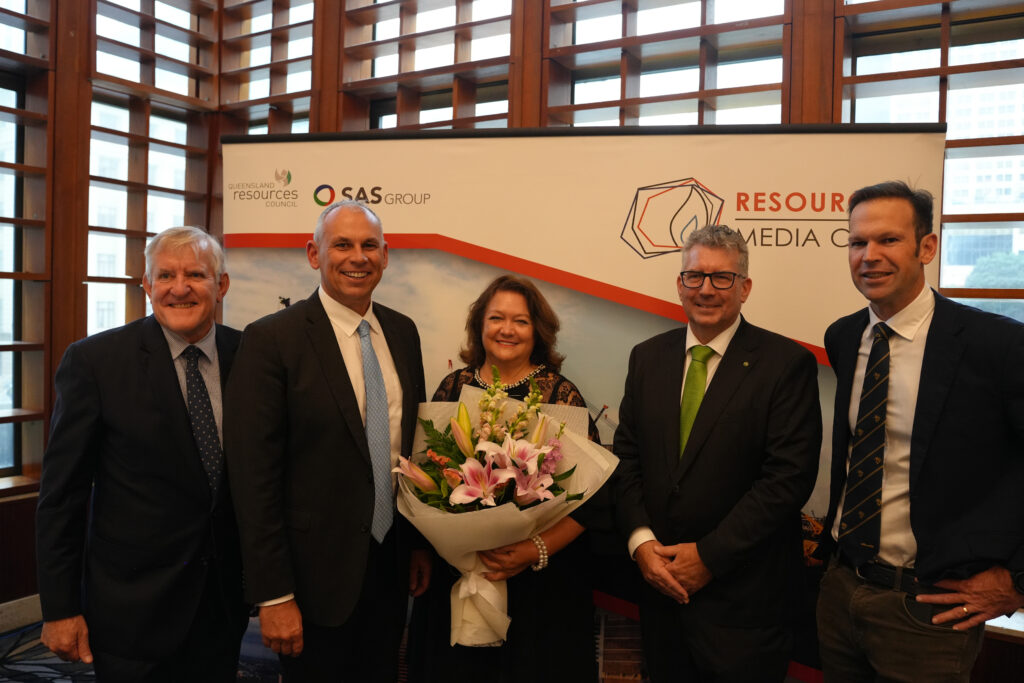
Rinehart warns of $60b investment gap
Mining magnate Gina Rinehart says Australia needs to develop more mines if it wants to maintain its standard of living, warning of a $60 billion investment shortfall in the resources sector. Delivering a rare public speech at the Queensland Resources Media Club in Brisbane yesterday, Ms Rinehart said the miningr sector was responsible for helping Treasurer Jim Chalmers deliver the first surplus in 15 years. She also took aim at the federal government’s delayed approval process for new mines, as well as mooted industrial relations reform.

The Australian | Letters | Gina’s warning
Gina Rinehart is absolutely correct to warn of the sovereign risk to investment (“ ‘No green energy projects without existing mining’, says Gina Rinehart”, 16/5), to our competitiveness and to our standard of living by governments that over-regulate, that introduce regulatory uncertainty and are anti – rather than pro – mining.